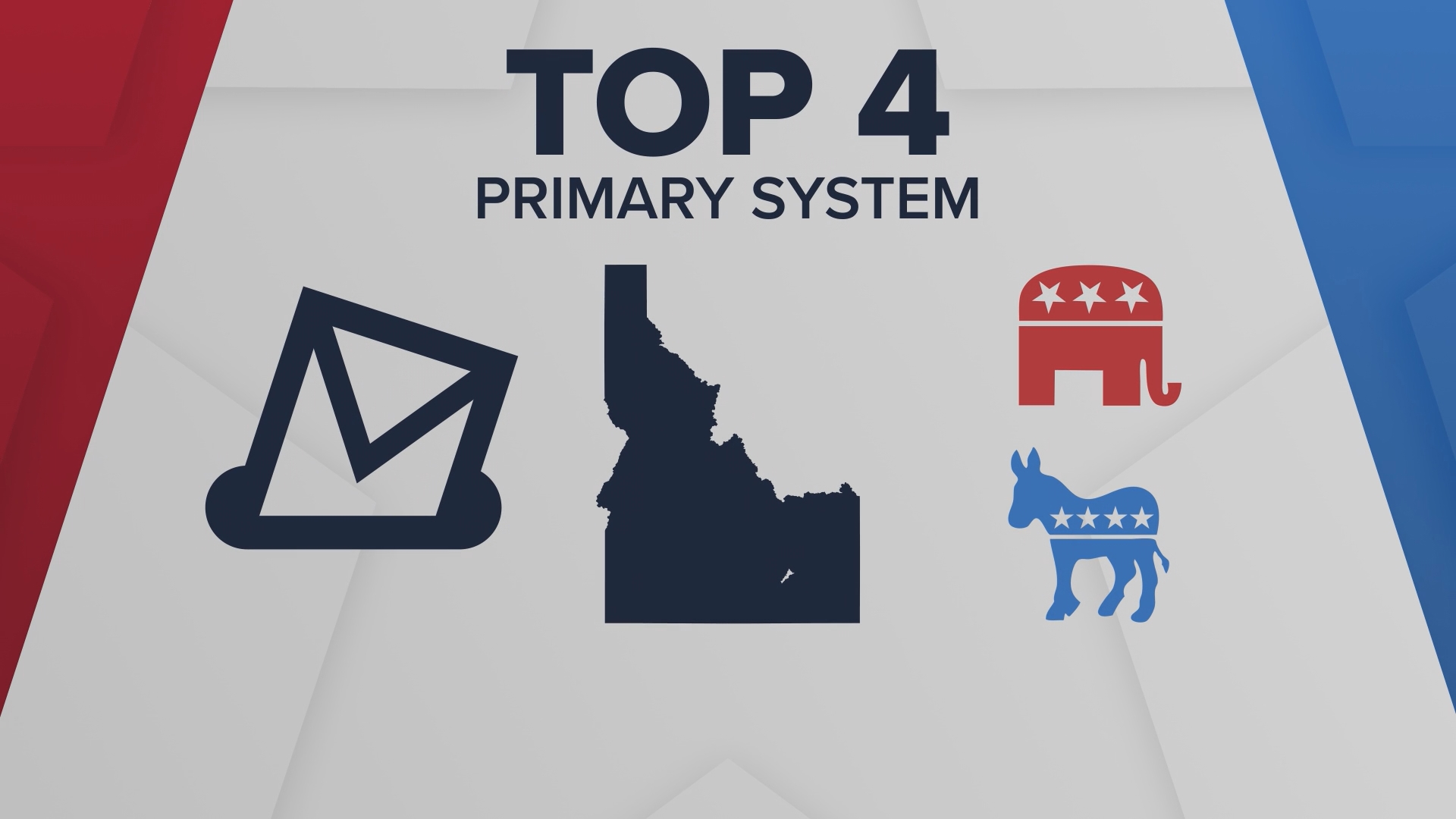IDAHO, USA — In the upcoming general elections, Idaho voters will see Idaho Proposition 1, the Top-Four Ranked-Choice Voting Initiative on their ballots.
Here's a rundown of what the initiative is asking voters to consider.
Proposed Change
The initiative, if passed, would repeal the state's partisan primary system and replace it with a top-four primary system where all candidates seeking an office will appear on one ballot and the top four vote-earners advance to the general election.
Candidates would be able to list their party affiliation, but it would not mean they represent the party and it is not required that they list a party affiliation. This system would be used at elections for the U.S. Senate, the U.S. House of Representatives, state legislature, elective state office and county elective office.
The initiative would also implement ranked-choice voting (RCV) at the general election.
RCV is an electoral system in which voters rank candidates by preference on their ballots. Votes would be tallied in rounds with the candidate receiving the least number of votes eliminated. Ballots that ranked an eliminated candidate as their first choice would be reevaluated and counted as first-preference ballots for the next listed highest-ranked candidate in that round.
A new tally would be conducted to determine whether any candidate has won a majority of ballots and the process is repeated until a candidate wins an outright majority. The initiative would not require voters to rank all candidates.
What is Idaho's current system?
Idaho is currently one of 10 states that has prohibited RCV via state statute. House Bill 179 was signed into law by Governor Brad Little on March 24, 2023.
The law says, "No county elections office shall use ranked-choice voting or instant runoff voting to conduct an election or nomination of any candidate in this state for any local government, statewide, or federal elective office."
In Idaho, all political party candidates for federal, state, district and county elective offices must be nominated via primary election. Idaho law also stipulates that political parties can determine who may participate in their primary elections.
Idaho voters affiliated with a political party must disaffiliate no later than the 10th Friday preceding the primary election to affiliate with another party and vote in its primary. The Democratic Party allows unaffiliated voters to vote in its primary while the Republican Party requires voters to be affiliated with its party.
What are other states doing?
Five states, Alaska, California, Louisiana, Nebraska and Washington, use a form of top-two primaries.
RCV is used statewide in Alaska, Maine and in some elections in Hawaii. As of June 2024, fourteen states contain localities that either use or are scheduled to begin using RCV in municipal elections.
In contrast, ten states have enacted legislation to prohibit the use of RCV in elections.
Overall
- A "yes" vote supports establishing top-four primaries and ranked-choice voting for general elections, which would apply to congressional, gubernatorial, state and county elected offices.
- A "no" vote opposes establishing top-four primaries and ranked-choice voting for general elections, thereby maintaining that all political party candidates for federal, state, district and county elective offices must be nominated via primary election.
To read the full text of the ballot measure, visit VoteIdaho's Initiatives and Amendments page.

